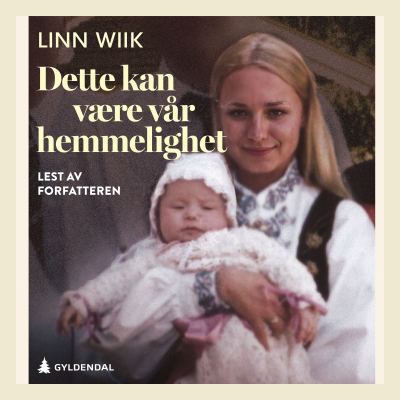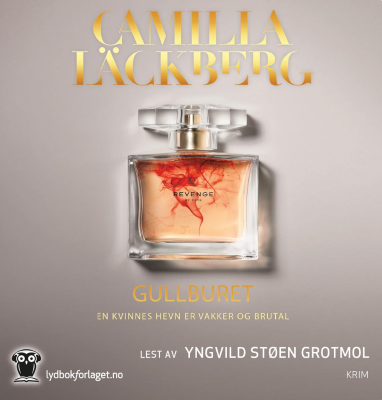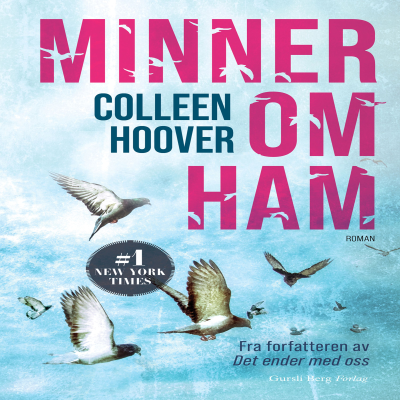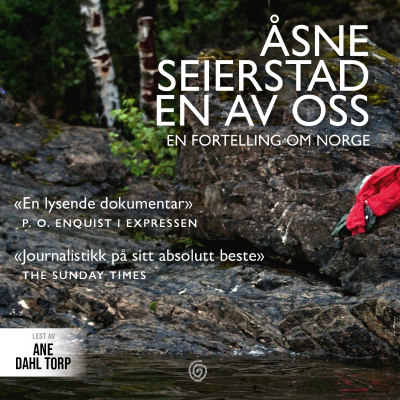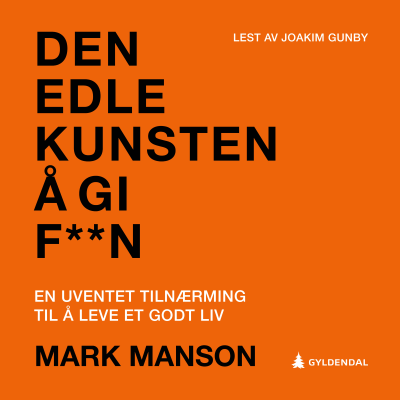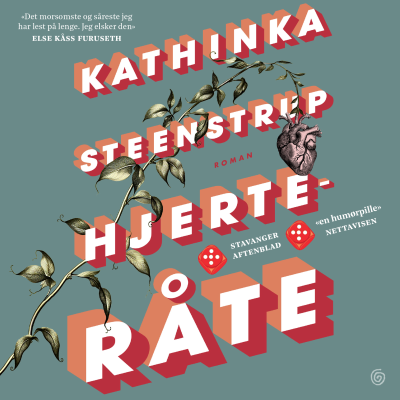
A Product Market Fit Show | Startup Podcast for Founders
engelsk
Business
Prøv gratis i 14 dager
99 kr / Måned etter prøveperioden.Avslutt når som helst.
- 20 timer lydbøker i måneden
- Eksklusive podkaster
- Gratis podkaster
Les mer A Product Market Fit Show | Startup Podcast for Founders
Every founder has 1 goal: find product-market fit. We interview the world's most successful startup founders on the 0 to 1 part of their journeys. We've had the founders of Reddit, Gusto, Rappi, Glean, Cohere, Huntress, ID.me and many more. We go deep with entrepreneurs & VCs to provide detailed examples you can steal. Our goal is to understand product-market fit better than anyone on the planet. Rated one of the world's top startup podcasts.
Alle episoder
265 EpisoderHis startup powers OpenAI's Voice Mode. Last month, they became a unicorn. | Russ d’Sa, Co-Founder of LiveKit
Russ was running a moderately successful live streaming startup. Then he got a terrifying offer from a tech giant: sell to us for cheap, or we'll crush you. He had no leverage. He was about to fold. Then he got an email from a random Gmail account. It was OpenAI. They had secretly built ChatGPT's voice mode on his infrastructure. Overnight, everything changed. In this episode, Russ reveals the wild story of how LiveKit became the backbone of multimodal AI, why he almost sold his previous company for parts, and how to survive when the biggest companies in the world are breathing down your neck. Why You Should Listen * How to secretly power ChatGPT’s voice mode. * Why you should build "boring" infrastructure instead of AI apps. * How to negotiate an acquihire when you have no leverage. * Why a "sell or die" threat from a tech giant was the best thing to happen. * How to pivot from a failed consumer app to a unicorn infrastructure play. Keywords startup podcast, startup podcast for founders, product market fit, AI infrastructure, multimodal AI, OpenAI, ChatGPT voice mode, founder stories, pivot, LiveKit 00:00:00 Intro 00:02:49 The OG YC Batch Experience 00:07:08 How to Sell a Failing Startup 00:15:51 The "Good Cop, Bad Cop" Investor Negotiation 00:35:56 The First Voice AI Demo That Flopped 00:38:29 The Secret Email from OpenAI 00:43:47 How to Scale Stateful Voice Agents Send me a message to let me know what you think! [https://www.buzzsprout.com/twilio/text_messages/1889238/open_sms]
He pivoted at $1M ARR—then raised $120M. | Kevin Tian, Co-Founder of Doppel
Kevin was building a successful startup in the NFT space. They'd hit $1M ARR. But he looked at the market and realized it wasn't big enough. So he made the terrifying choice to pivot the entire company into cybersecurity. In this episode, Kevin breaks down how he navigated that transition without killing the business. He reveals how he sold his first $5k/month contract with no product, why he raised a massive seed round he didn't need, and how he convinced Andreessen Horowitz to lead his Series A in the middle of a strategic shift. Why You Should Listen * How to pivot from a bad market to a unicorn opportunity. * Why he sold a $5k/month contract with zero product. * How to raise a Series A from a16z during a pivot. * Why you never truly "find" Product Market Fit. * The danger of building for a niche market (and how to escape). Keywords startup podcast, startup podcast for founders, product market fit, finding pmf, pivot, cybersecurity, crypto startup, a16z, raising series a, Kevin Tian 00:00:00 Intro 00:02:17 Meeting at Uber and the "Glass Eating" Phase 00:07:21 The First Idea 00:11:52 Selling the First $5k/Month Contract with No Product 00:16:52 The Decision to Pivot at $1M ARR 00:29:43 Network Selling to Enterprise Cybersecurity 00:32:03 Raising Series A from a16z During a Pivot 00:33:36 Why Product Market Fit is Not a One-Time Event 00:35:10 Action Produces Insights Send me a message to let me know what you think! [https://www.buzzsprout.com/twilio/text_messages/1889238/open_sms]
He sold his first startup for $100M. Then raised $250M in 18 months. | Dileep Thazhmon, Founder of Jeeves
Dileep sold his first company for over $100M. For his second act, he didn't just want another win; he wanted to solve a problem that banks refused to touch: global business banking. In this episode, Dileep breaks down how Jeeves scaled to $7M ARR in just over a year by doing things that "don't scale"—like physically mailing credit cards to Argentina. He reveals the counterintuitive strategy of raising from dozens of small investors, how to pivot a fintech when interest rates skyrocket, and why being an outsider was his biggest advantage in building a global banking infrastructure from scratch. Why You Should Listen * How to get to $7M ARR in one year through unscalable acts. * Why a "messy" cap table with 50+ investors is actually a secret weapon. * The "Beat Down" Framework: A brutal stress test for vetting your idea. * The offline marketing stunt that actually worked. Keywords startup podcast, startup podcast for founders, product market fit, fintech startup, global expansion, second time founder, Y Combinator, fundraising strategy, B2B banking, finding pmf 00:00:00 Intro 00:02:04 Selling His First Company for $100M 00:08:19 The "Beat Down" Framework for New Ideas 00:19:38 The One Metric That Matters for PMF 00:24:44 Why Join YC as a Second-Time Founder? 00:29:15 Shipping Cards to Argentina by Hand 00:39:13 The Pivot to Jeeves Pay When Cards Got Shut Down 00:43:25 The "Messy Cap Table" Fundraising Strategy 00:49:27 The Moment of True Product Market Fit Send me a message to let me know what you think! [https://www.buzzsprout.com/twilio/text_messages/1889238/open_sms]
He sold his first 2 startups. His 3rd grew to $1M ARR in 3 months. | Chaz Englander, Founder of Model ML
Chaz has founded 3 companies. The first sold for over $40M. The second sold to GoPuff for even more. Now, he’s on his third act with Model ML, having just raised $75M Series A <2 years in. In this episode, Chaz breaks down the playbook behind his successes. He reveals how he raised his first million by pitching strangers on LinkedIn, why his delivery startup was just a text message system on the backend, and why speed is the only defensive moat left. Why You Should Listen * How to pitch strangers on LinkedIn for angel checks. * Why you should always say you're raising "a bit more" than you actually are. * Why "Product Market Fit" is no longer static in the age of AI. * How to launch a massive consumer business. * Why getting a paid design partner isn't enough. Keywords startup podcast, startup podcast for founders, serial entrepreneur, fundraising strategy, product market fit, rapid scaling, AI startup, exit strategy, MVP, fintech 00:00:00 Intro 00:04:46 Pitching Strangers for Angel Checks 00:07:51 The "Fake" Fundraising Strategy 00:23:28 Why MVPs are Dead in the AI Era 00:25:01 Selling to GoPuff While Running Out of Cash 00:32:25 The Origin of ModelML 00:38:30 The Design Partner Playbook 00:46:13 From $5k to $100k MRR in 3 Months Send me a message to let me know what you think! [https://www.buzzsprout.com/twilio/text_messages/1889238/open_sms]
He fired all his customers. Then built a $1B startup in 2 years. | Jay Madheswaran, Co-Founder of Eve
Jay was running a respectable AI startup with $3M ARR. But he knew it wasn't a venture-scale rocket ship. So, he decided to fire all his customers, pivot the entire company, and bet everything on a new vertical: legal AI for plaintiff attorneys. Eve went from zero to unicorn status in under two years, raising $100M at a $1B valuation. In this episode, Jay breaks down the brutal reality of pivoting a revenue-generating company, how to achieve "demo shock" in an antiquated industry, and why 4-hour user sessions were the first sign that he had struck gold. Why You Should Listen * How threatening to shut down your product can reveal PMF. * Why firing all your existing customers might be the only way to scale. * How to achieve a 40% conversion rate from cold outreach to demo. * Why you should target mid market instead of enterprise if you want to deploy AI fast. Keywords startup podcast, startup podcast for founders, product market fit, finding pmf, pivot, legal tech, AI startup, B2B sales, unicorn startup, Jay Madheswaran, Eve 00:00:00 Intro 00:02:27 From VC to Founder 00:08:42 The First Idea: RPA for NLP 00:16:52 The Hard Decision to Pivot at 3M ARR 00:24:26 Product Discovery While Still Supporting Old Customers 00:33:56 40 Percent Conversion from Cold Outreach 00:39:56 Firing Customers to Find True PMF 00:41:06 The 4-Hour User Session Signal 00:46:05 From 1M to 10M ARR in One Year 00:49:11 The Moment of True Product Market Fit Send me a message to let me know what you think! [https://www.buzzsprout.com/twilio/text_messages/1889238/open_sms]
Velg abonnementet ditt
Premium
20 timer lydbøker
Eksklusive podkaster
Gratis podkaster
Avslutt når som helst
Prøv gratis i 14 dager
Deretter 99 kr / måned
Premium Plus
100 timer lydbøker
Eksklusive podkaster
Gratis podkaster
Avslutt når som helst
Prøv gratis i 14 dager
Deretter 169 kr / måned
Prøv gratis i 14 dager. 99 kr / Måned etter prøveperioden. Avslutt når som helst.
































